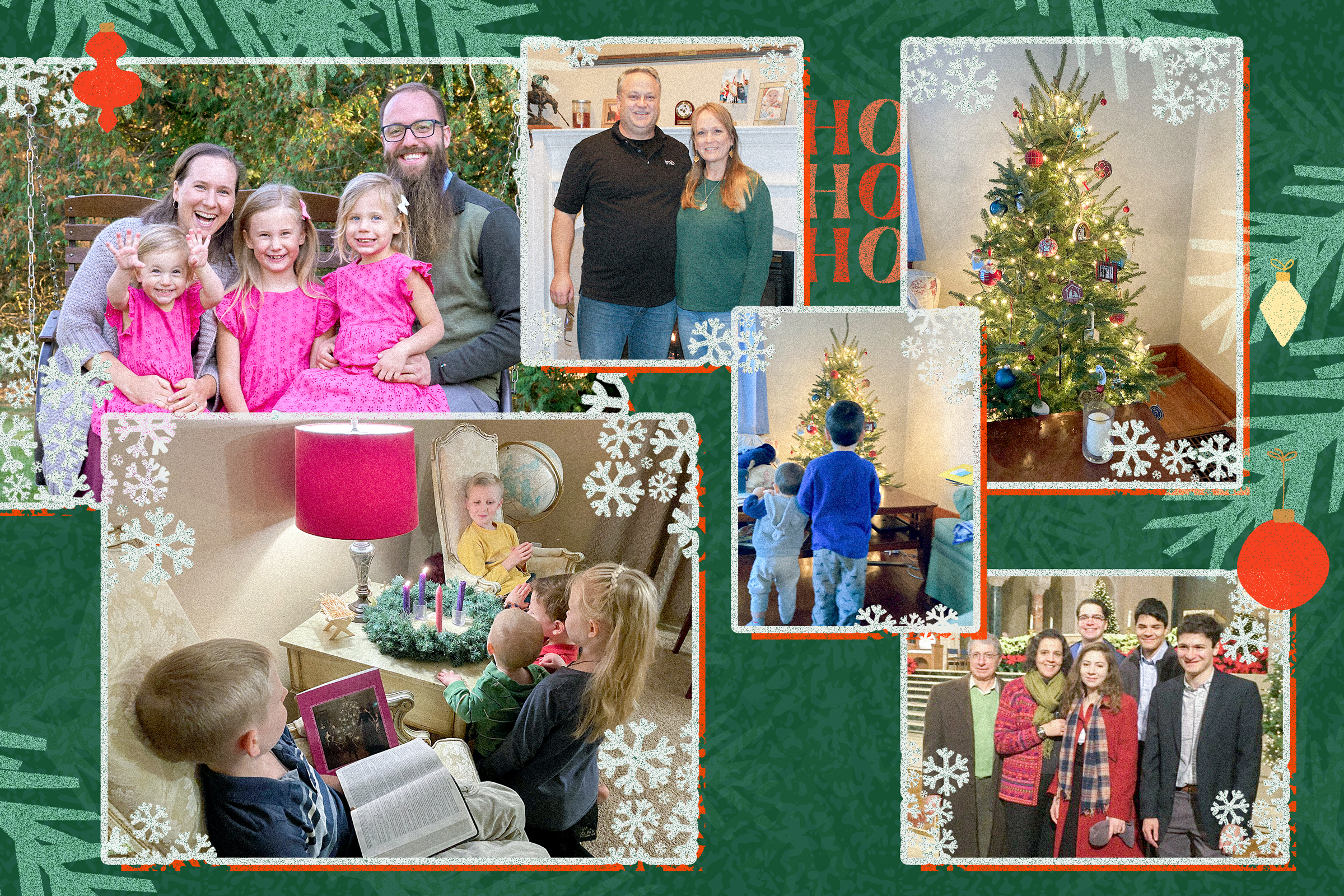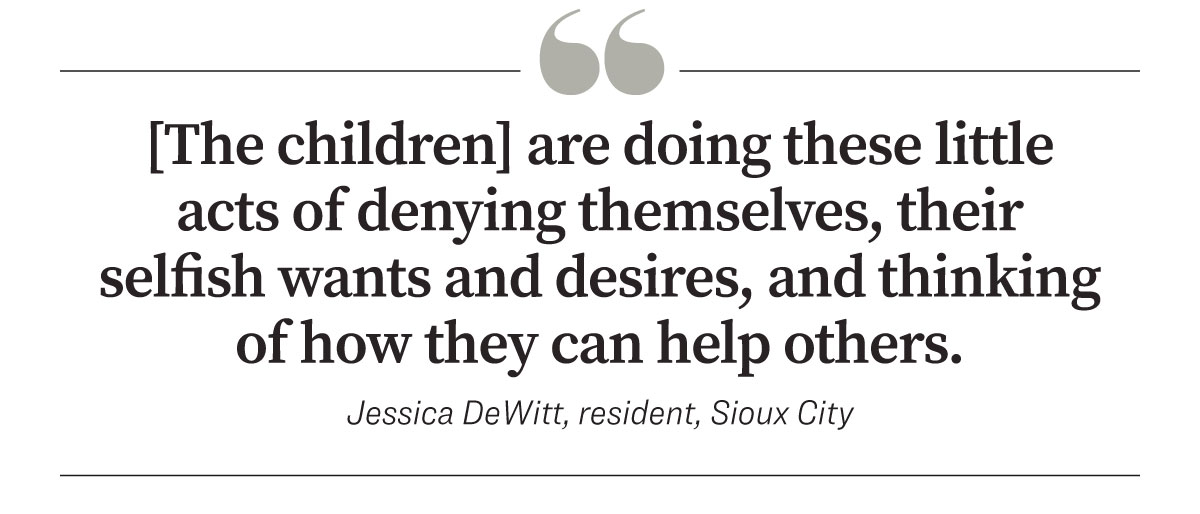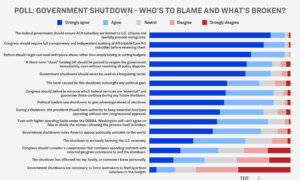Every year, it got more intense. The advertisements started earlier and earlier. The lawn decorations became bigger and brighter. And the consumerism—the craving, spending, and debt—got to be too much.
Family time seemed to be slipping away. It wasn’t what parents wanted for themselves and their children. Something had to change.
That version of the Christmas story is familiar to many Americans who have grown weary of the many social and financial obligations attached to the holiday season.
The sentiment is humorously expressed in a social media meme: “The War on Christmas cannot end until Christmas stops its illegal occupation of November. I am calling on the Claus regime to return to the borders agreed upon in the Black Friday Agreement.”
Yet the ever-growing demands of the holiday season can exact a toll on financial and emotional well-being.
More than two in five U.S. adults report feeling stressed during the holidays, according to the American Psychological Association. More than a third say the holidays feel like a competition.
Some 28 percent of Americans who charged 2023’s holiday gifts on a credit card still owe some of the balance, according to a survey conducted by The Harris Poll for NerdWallet.
Amid the crush of holiday obligations, we found some families who have found ways to pare the expectations back and create meaningful, joy-filled Christmas celebrations.
While they were quick to point out that they’re not down on the Christmas season itself, they valued taking control of their calendar, setting financial boundaries, and focusing more on religious traditions.
Anticipation
The holiday season has been growing longer since 1939, when President Franklin D. Roosevelt set the date of Thanksgiving as the fourth Thursday in November. Thanksgiving had been celebrated on the last Thursday of the month, which fell on Nov. 30 that year.
Concerned that the shortened shopping season would dampen the country’s recovery from the Great Depression, Roosevelt moved Thanksgiving up a week. Congress made the change permanent in 1941.
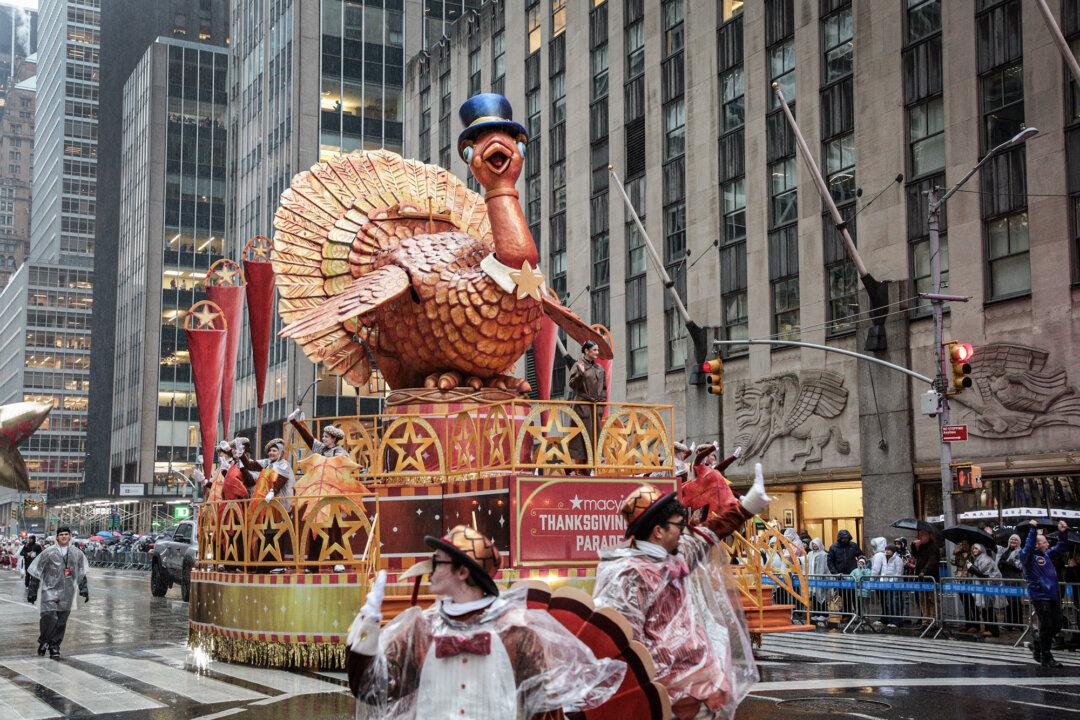
An estimated 3 million people turned out in inclement weather to watch the Macy's Thanksgiving Parade in New York City on Nov. 28, 2024. (Richard Moore/The Epoch Times)
Thus began Black Friday and what would later be called “Christmas creep,” the gradual lengthening of the holiday season. Christmas advertising and store decorations are now seen routinely in October.
A common theme among families who have retooled their holiday practices is to delay celebrating Christmas until much closer to the day itself. For many, that involves Advent, the four weeks leading up to Christmas observed by Roman Catholics and many Protestants. The purpose is to cultivate one’s spiritual life in anticipation of the celebration of Jesus’s birth.
For Rebecca Teti, 56, of Hyattsville, Maryland, Advent is a way of pushing back against the ever-increasing social and financial expectations of the holiday season.
Raised in a mixed Jewish and evangelical Christian home that celebrated the cultural symbols of the season, Teti converted to Catholicism as an adult. She and her husband, Dennis, reached a turning point after celebrating their oldest child’s first Christmas with the extended family.
“We went over to the grandparents’ house, and here’s this poor little toddler who'd be perfectly happy playing with a tube of cardboard, and he had to keep opening presents. It was just way too much,” Teti said.
Teti and her husband began the practice of Advent with their children. Though the kids are now grown, the couple still spends the four weeks before Christmas in prayer and reflection rather than partying and decorating.
“We don’t do parties, we don’t do lights, we don’t do decorations until much closer to Christmas,” Teti said. “If I do let myself get caught up in preparation, preparation, preparation, it kind of spoils the celebration.”
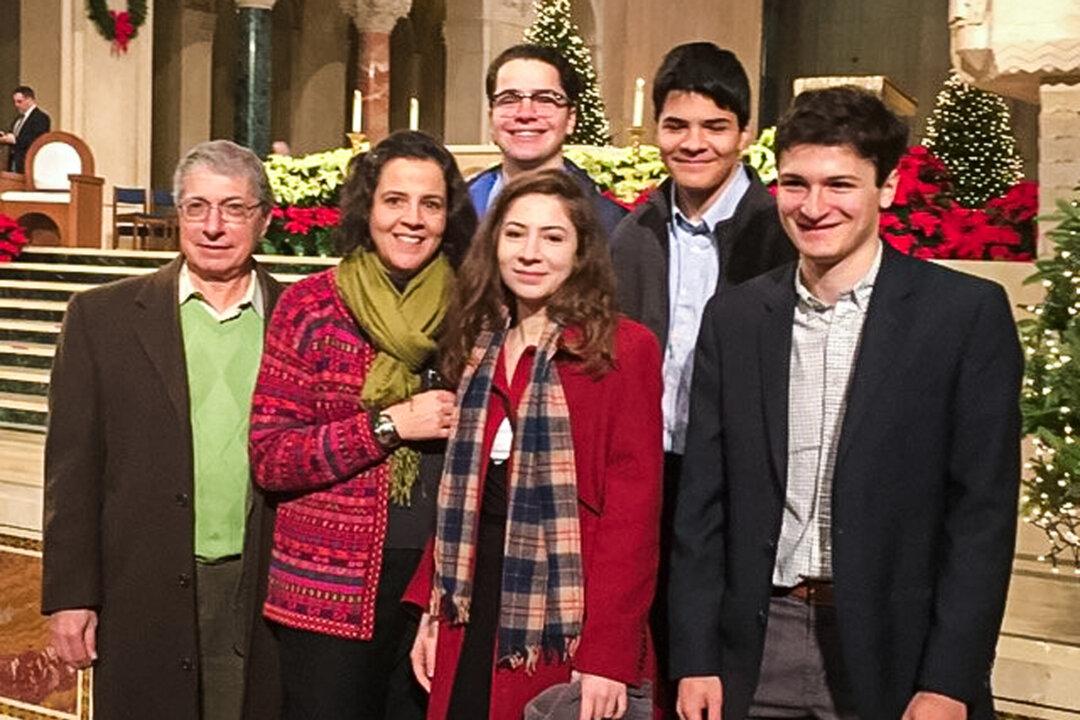
Dennis (L) and Rebecca Teti with their children at the National Shrine of the Immaculate Conception in Washington on Jan. 1, 2018. (Courtesy of Rebecca Teti)
Delayed gratification is difficult for our culture to accept, according to Tracy Hilts, pastor of Living Hope Church in Colorado Springs, Colorado.
“Advent requires an intentionality that does not come naturally to our Western mindset,” Hilts wrote in an article for the Evangelical Covenant Church website.
Yet the waiting is part of the joy for those with whom we spoke.
Sherry and Nathaniel Binversie of Fort Wayne, Indiana, heighten the anticipation of Christmas by placing an Advent wreath and candles on their dining room table.
An Advent wreath commonly contains four candles, lit one by one over the four weeks of the Advent season.
“We light the candles at every meal,” Sherry Binversie, 32, told The Epoch Times. “We’re marking the time as the light of Christ is coming.”
The Teti and Binversie families also wait until Epiphany to exchange gifts with their immediate families. That holiday, which falls on Jan. 6, marks the visit of the three wise men, or Magi, bringing gifts to Jesus. It is the day after the traditional 12 Days of Christmas, which symbolize the journey of the Magi.
“That has worked really well for us because it makes Christmas morning less about gifts and more about the joy of Christ’s coming and being able to be with family,” Teti said.
Part of the fun for the children was being able to eat whatever they chose from Christmas through New Year’s Day. Ice cream on a Monday? Sure, it’s Christmas!
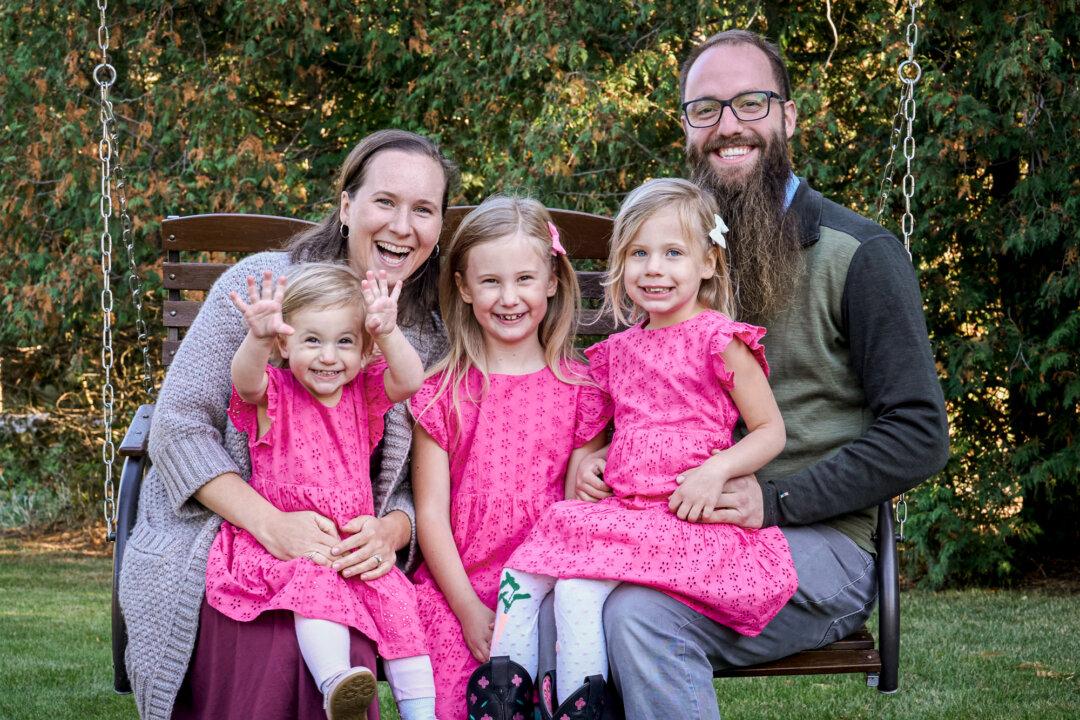
Nathaniel and Sherry Binversie of Fort Wayne, Ind., with their children in 2004. (Courtesy of Sherry Binversie)
Faith
The overwhelming majority of Americans, 91 percent, celebrate Christmas. That includes 82 percent of those with no religious affiliation and 74 percent of adherents to other religions. That’s according to Lifeway Research, an evangelical research firm associated with the Southern Baptist Convention.
While most are aware that Christmas celebrates the birth of Jesus Christ, fewer than half attend a church service during the holiday season.
For the families we spoke with, Christmas becomes more meaningful and enjoyable when they focus on the spiritual meaning. That involves some traditional religious practices. While that typically includes attending a church service on Christmas Eve or Christmas Day, most of their religious traditions take place at home and involve the entire family.
Kathleen and Vincent Birch of Fort Wayne, Indiana, use an Advent calendar to count down the days until Christmas with their oldest child. An Advent calendar features a set of numbered windows or drawers that conceal a treat or other object.

A decorated Christmas tree sits in the home of Kathleen and Vincent Birch, of Fort Wayne, Ind., in 2024. (Courtesy of Kathleen Birch)
“We have an Advent calendar that’s not just chocolates,” Kathleen Birch, 30, told The Epoch Times. “It has Scripture verses, and we try to talk about it with our son—he’s 3.”
Other families, such as Carla and Cory Gonyo of the Quad Cities area of Iowa, have used a Jesse Tree to teach children the meaning of Christmas. A Jesse Tree is a small tree decorated with ornaments representing various aspects of Jesus’s coming, from the foretelling by ancient prophets to his birth in Bethlehem. The tree is named after the father of King David, an ancestor of Jesus.
“I still have it,” Carla Gonyo, 52, said of the wall-hanging tree she used when her children were young. “Each little ornament that goes on it represents a different part in the chronological story of Jesus.”
Several of these families aim for a daily devotional time, often including Advent-themed songs, children’s books, or videos. Some include a mix of biblical stories and secular Christmas books or movies.
Giving
Gift-giving is the essence of Christmas for many Americans and a source of delight for children. The families we spoke with participate in that tradition, but they’re careful not to allow the presents to displace what they see as the true Christmas gift: God’s love for humanity and the love for one another.
Carla Gonyo said the time she spent living in a developing nation, where the smallest gifts evoked deep appreciation, made her mindful of the expectations that have developed around Christmas gifts.

Carla and Cory Gonyo of the Quad Cities area of Iowa in 2024. Carla said her time spent in a developing nation makes her more inclined to give modest, personalized gifts. (Courtesy of Carla Gonyo)
She still loves to give presents, especially to her grandchildren, she said, but she gives fewer, more personalized gifts.
Last year, Gonyo bought her adult children recipe boxes and filled them with handwritten family recipes. “That’s what my mom did for me for my wedding,” Gonyo said. “And I love looking at her handwriting because it’s a part of her.”
Some families have made a tradition of serving others, for example by volunteering at a soup kitchen or giving to charity around Christmastime.
Jessica and Kolby DeWitt of Sioux City, Iowa, begin the season with a replica of an empty manger, a feeding trough for animals.
Each time one of their six children, ages 1 to 10, does something kind, like helping out a sibling or doing household chores without being asked, they add a piece of straw to the manger. They’re symbolically preparing it for the baby Jesus, who was laid in a manger as a newborn.
“They’re doing these little acts of denying themselves, their selfish wants and desires, and thinking of how they can help others,” Jessica DeWitt, 32, told The Epoch Times. “I’ve been trying to instill in them that we want to focus more on Jesus. How can we help others along with Jesus?”
Christmas is also a fun time for children. And that includes presents, even if they’re simpler or fewer in number.
Birch said she and her husband intend to limit the number of gifts they give their children using an approach learned from family members.
“We’re going to try giving him three gifts, in the spirit of the Wise Men with their three gifts,” she said. “Each of the gifts has a meaning related to the birth of Christ.”
The gifts of the Wise Men were gold (a precious commodity), frankincense (burned during prayer), and myrrh (a healing ointment). Some families have adopted that pattern, giving their children one item the child will treasure such as a toy, one gift with spiritual meaning such as a book, and one present for the body, such as an item of clothing.
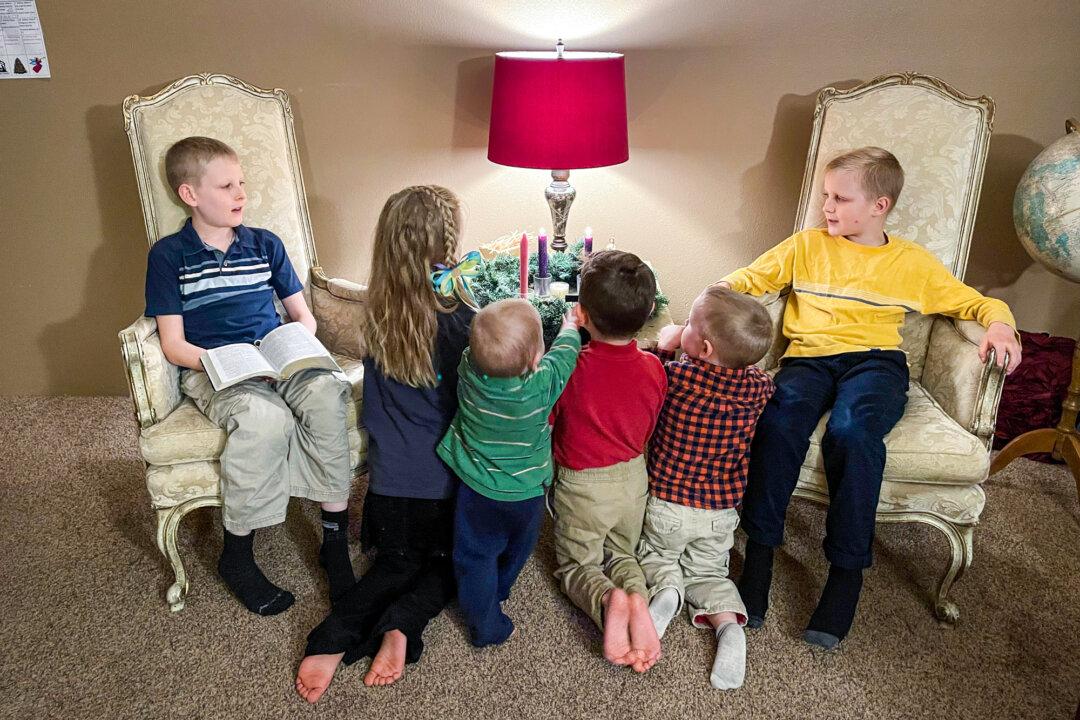
Jessica and Kolby DeWitt's six children gather around an Advent wreath, next to a tiny manger in which they place pieces of straw after doing a kind deed for someone. (Courtesy Jessica DeWitt)
Simplicity
Overall, these Christmas celebrations emphasize doing less, not more, to make Christmas special. That applies to religious traditions as well.
“We recognize that there are so many beautiful and wonderful and good and rich traditions that we could do,” Binversie said. “But at the same time, if we try to do them all, it would feel more like a list of things to be done.”
Gonyo said: “We still give presents. We love people. We love the holidays.” But the celebration is designed to focus on what matters most to her family.
“It’s really all about love,” she said. “Loving God, loving truth, wanting to honor Him with our lives and our hearts.”
Many of the usual holiday traditions are common among these families, including festive gatherings, gift exchanges, popular Christmas songs and movies, and favorite foods. Most often, this includes going to church on Christmas Eve or Christmas Day, and then spending time with family.
“We purposefully do nothing on Christmas Day, just rest and enjoy family time,” said Birch, who alternates between spending time with her parents and in-laws. “We'll have a special meal and just spend time hanging out, playing games, and resting.”
“We have fruitcake,” said Gonyo, whose mother-in-law makes several dozen each year. “I know the world is divided over fruitcake, but I would just say that if you don’t like fruitcake, you haven’t had hers.”
What’s missing in these observances is the stress that so often overwhelms people during the holidays.
“I’m not approaching Christmas with a sense of dread because I didn’t get through all of my shopping list,” Binversie said. “We can sing Christmas songs together, or have dance parties in the living room, or just sit and enjoy hot cocoa while looking at the Christmas lights.”
DeWitt said: “I’ve been more at peace during the holiday season. I haven’t had the Christmas blues.”
For Teti, that feeling of peace is the essence of Christmas.
“If we can feel the fear of a fallen world and experience all too deeply our inability to make things right, there’s a deep joy in knowing that there’s a savior,” she said. “And that’s the good news that we’re celebrating.”
